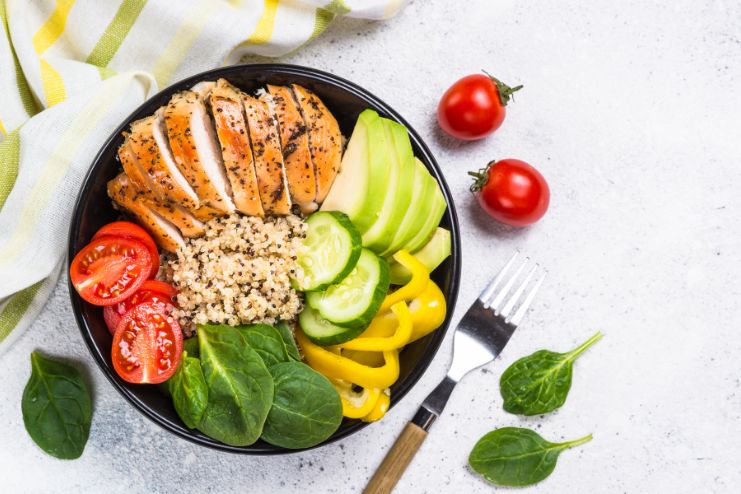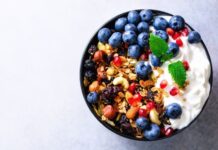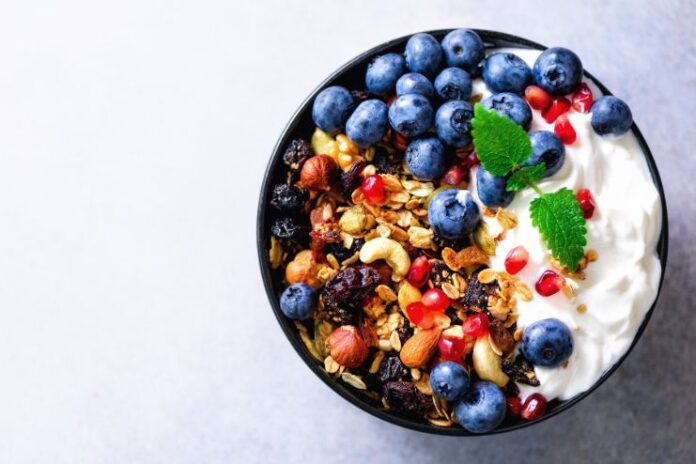Affiliate Disclaimer
Some links in this article are affiliate links. We may earn a small commission if you make a purchase through these links, at no extra cost to you. We only recommend products we find useful to our readersFood combining is a dietary approach that focuses on pairing certain foods while avoiding others to improve digestion, nutrient absorption, and gut health. The concept has its roots in Ayurveda, naturopathy, and holistic health practices, with advocates claiming it reduces bloating, boosts metabolism, and improves overall digestive efficiency.
But does food combining live up to the hype, or is it just another nutrition myth?
In this article, we’ll dive into the core principles of food combining and explore the science behind these claims. We’ll also look at the drawbacks and criticisms often raised by experts. Finally, we’ll share some expert-backed tips for optimizing digestion, whether or not you choose to follow food-combining guidelines.
The Core Principles of Food Pairing

The idea is that different food groups digest at varying rates and require different enzymes, so separating them can reduce bloating, enhance nutrient absorption, and boost metabolism. While some swear by its benefits, others question whether it’s based on solid science.
Below are the core principles of food combining:
Protein + Starch
- Avoid eating proteins (e.g., meat, fish) and starches (e.g., bread, rice) together, as they are believed to require different digestive enzymes, which can slow digestion.
Fruits Alone
- Eat fruits on an empty stomach, as they digest faster than other foods and may cause fermentation and bloating when mixed.
Acidic vs. Alkaline Foods
- Avoid combining highly acidic foods like meat, dairy, and citrus fruits with alkaline foods such as leafy greens, bananas, or almonds, as it may interfere with stomach acid levels and reduce digestive efficiency.
Dairy and Digestion
- Consume dairy separately from other foods due to its unique digestion process, which some believe could hinder digestion when mixed with other food groups.
READ MORE: 22 Food Combinations That the Majority of People Are Not Aware Of
The Science Behind Food Combining

Curious about whether food combining truly holds up scientifically? While proponents of food combining argue that separating certain food groups can improve digestion, science tells a different story.
Here are seven key points to consider:
- Digestive Enzymes and Stomach Acidity: Your body is built to process multiple food groups simultaneously. Digestive enzymes work together to break down proteins, carbs, and fats efficiently, no matter the combinations.
- Gastrointestinal Transit Time: Contrary to food-combining beliefs, mixing foods doesn’t slow digestion. The body adjusts the digestion speed based on how complex the meal is, not by isolating food groups.
- Nutrient Absorption: Certain food pairings, like combining vitamin C with iron-rich foods, can enhance nutrient absorption, which goes against food-combining principles.
- Protein-Starch Myth: There’s no scientific proof that eating proteins and starches together overwhelms the digestive system. Your body is equipped to handle these combinations without issues.
- Fruit Digestion: While it’s often claimed that fruits should be eaten alone, there is no evidence that eating them with other foods causes fermentation or bloating.
- Acid-Alkaline Balance: The idea that eating acidic and alkaline foods together disrupts digestion is largely unsupported. Your stomach’s acidity naturally adjusts to what you consume.
- Debunking Bloating Myths: Studies have shown that food combinations do not significantly prevent bloating or other digestive issues. Our bodies are designed to process mixed meals efficiently.
Benefits of Food Combining

Though scientific research on food combining is limited, many people report positive results from following its principles. While these benefits might stem from overall dietary improvements rather than food combining, some individuals feel better when they pay attention to how different foods are paired.
Here are some potential perks that people have experienced:
- Reduced Bloating and Gas: Some find that separating certain food groups helps with bloating, but this may be due to cutting out processed foods or making healthier choices overall.
- Mindful Eating: Food combining promotes a more mindful approach to eating, encouraging slower, more intentional meals, which can lead to better digestion.
- Simplified Meals: By focusing on whole, minimally processed foods, food combining often leads to simpler, healthier meals.
- Increased Fiber and Nutrients: By following these principles, you can increase your fiber intake, vitamins, and antioxidants, as they typically emphasize nutrient-rich, plant-based foods.
- Supports Digestion and Satiety: The emphasis on whole foods can improve gut health, aid digestion, and even enhance feelings of fullness, which might support weight management.
READ MORE: 10 Ways to Prevent Stomach Bloating- Causes and Remedies
Potential Drawbacks and Criticisms

While food combining has gained popularity in various holistic health circles, it’s not without its fair share of skepticism and criticism. Despite some people’s reports of better digestion and reduced bloating, the scientific community remains unconvinced.
Many of the claims made by food-combining advocates are not supported by research, and following this dietary approach can have its downsides.
From creating unnecessary restrictions to causing potential nutritional imbalances, food combining has several drawbacks. Let’s explore more!
- Lack of Scientific Evidence: There is no solid research proving that food combining improves digestion or nutrient absorption despite anecdotal claims.
- Focus on Pseudoscience: The concept is often based on pseudoscientific ideas, such as the belief that certain food combinations can cause toxin buildup, which lacks scientific backing.
- Conflicting Claims: Advocates of food combining promote conflicting rules, like avoiding protein and starch together, which have no scientific merit.
- Nutritional Imbalances: Strictly following these guidelines could limit dietary variety, leading to potential nutrient deficiencies.
- Inconvenience in Meal Planning: Planning meals around food-combining rules can be difficult and make social eating or dining out more complicated.
- Misinformation: The approach may encourage restrictive eating habits based on misinformation, which can lead to disordered eating patterns.
- Focus on a Balanced Diet: Experts suggest focusing on a balanced diet rich in whole foods rather than obsessing over specific food combinations.
Expert-Backed Tips for Optimal Digestion

Experts recommend simple, evidence-based strategies for better gut health. Focus on a balanced diet, proper hydration, and incorporating probiotics. Regular exercise and mindful eating also play key roles in supporting healthy digestion.
Dietary Recommendations
A balanced diet rich in fiber, staying hydrated, and incorporating gut-friendly foods are key strategies resulting in overall well-being.
- Balanced Meals: Incorporate a mix of proteins, carbs, and healthy fats in each meal to promote optimal digestion and nutrient absorption.
- Portion Control: Eating smaller, well-balanced meals can help your digestive system work efficiently and prevent discomfort.
- Probiotics and Prebiotics: Include probiotic-rich foods like yogurt and prebiotics such as onions or bananas to support a healthy gut microbiome.
- Hydration: Drink enough water throughout the day to break down food and aid digestion.
- Fiber-Rich Foods: Eating plenty of fiber from fruits, vegetables, and whole grains helps maintain regular bowel movements and overall digestive health.
READ MORE: Best Easy-to-Digest Foods
READ MORE: Gut Health Hacks: The Best Morning Foods to Kickstart Digestion
Lifestyle Changes
Managing stress, exercising regularly, and getting enough sleep can support your digestive system. These lifestyle changes are simple yet powerful ways to improve gut health.
- Regular Exercise: Engaging in physical activity boosts digestion by helping your intestines move food along more efficiently.
- Stress Management: Reducing stress through activities like meditation or yoga helps alleviate stress-related digestive issues.
- Mindful Eating: Slowing down while eating and thoroughly chewing food makes digestion smoother and more effective.
- Adequate Sleep: Getting enough rest supports your digestive health and prevents potential sleep deprivation issues.
- Identify Trigger Foods: Pay attention to foods that cause discomfort (e.g., dairy or spicy foods) and adjust your diet accordingly.
Final Thoughts
To wrap things up, food combining might sound like a unique approach to improve digestion, but scientific evidence doesn’t support it. Our bodies are incredibly efficient at handling mixed meals, so separating food groups isn’t necessary for most people. Still, some folks feel better when they follow these rules, but it’s likely due to eating more mindfully and choosing healthier options rather than the combinations themselves.
The real key to good digestion lies in eating a balanced diet, staying hydrated, managing stress, and getting enough sleep. These habits are backed by research and are a lot easier to stick with in the long run. So, if food combining works for you, great—but don’t feel like it’s the only way to take care of your gut.
Listen to your body, always.
References
In this Article




















